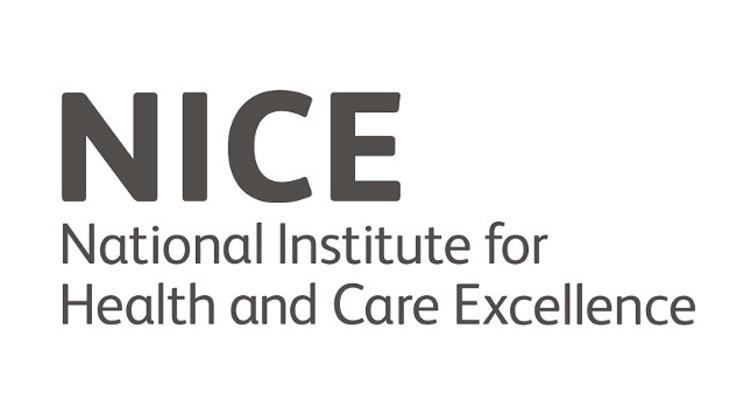NICE consultation on mogamulizumab for skin lymphoma
Published on: 11 August 2020Have your say on mogamulizumab for mycosis fungoides and Sézary syndrome - CLOSES TODAY (19 August)

The National Institute for Health and Care Excellence (NICE, one of the bodies that decides whether to make drugs available on the NHS) has opened a consultation on its appraisal of mogamulizumab for cutaneous (skin) T-cell lymphoma.
Mogamulizumab is an antibody therapy that targets a protein called CC chemokine receptor (CCR4). This protein is often present on cutaneous T-cell lymphoma cells. Mogamulizumab is licensed for the treatment of adult patients with mycosis fungoides or Sézary syndrome, who have received at least one previous systemic therapy. Mycosis fungoides and Sézary syndrome are the two most common subtypes of cutaneous T-cell lymphoma, a rare type of non-Hodgkin lymphoma affecting the skin.
In its draft recommendation, NICE suggests that mogamulizumab should not be made available on the NHS. However, this is not NICE's final guidance and these recommendations may change after consultation.
Lymphoma Action is among organisations and individuals opposing the recommendation and we hope this will result in a change of guidance.
The consultation runs until 19 August 2020 and is open to anybody who has an interest. Please let NICE know your views.
You will need to register with NICE to submit a response to the consultation. You might find some of the questions in the consultation difficult to answer. You are free to use Lymphoma Action’s response below as a basis for your answers if you would like to.
Suggested responses
- We are concerned that the rarity of mycosis fungoides (MF) and Sezary syndrome (SS) has not been given sufficient consideration. It is unreasonable to demand the same standards of trial evidence in rare subtypes of cancers as in more common cancers. In the MAVORIC trial, mogamulizumab was not directly compared with the committee’s defined UK options for MF/SS because it would have been unethical to use a comparator agent that many of the trial participants had already been treated with unsuccessfully. Patients recruited into the trial had already received a median of 3 previous treatments and most had already had bexarotene and/or interferon. Excluding patients who had already received these treatments would have significantly affected trial recruitment which, for such a rare condition, would have led to an inadequately powered trial. Instead, an alternative comparator was selected that has been proven in clinical trials to be effective and well tolerated in CTCL and has been widely used in other countries for several years.
- We feel the clinical evidence supporting mogamulizumab has been unreasonably dismissed. Many treatments currently used for people with MF/SS have only been studied in single-arm trials or are not specifically licensed for the condition and are prescribed off-label. However, mogamulizumab is supported by robust data from a randomised phase 3 trial involving 370 patients – the largest randomised controlled trial ever conducted in cutaneous T-cell lymphoma (CTCL). It is unreasonable to dismiss the positive data from this large trial because it does not directly compare mogamulizumab with treatments currently used as NHS standard – especially since most patients recruited into the trial had already been treated with many of these standard options but had failed to respond or had experienced relapse. Despite this, mogamulizumab provided significant, measurable benefits against an active comparator in this difficult-to-treat, heavily pretreated population.
- We are concerned that this recommendation does not acknowledge the impact of advanced stage MF and SS on patients. These are long-term conditions that cause significant symptoms and can be aggressive. Existing treatments do not, in general, produce durable responses and patients are keen for treatment options that give them longer disease control. In the MAVORIC trial, the primary outcome measure of progression-free survival (PFS) supports a longer duration of response with mogamulizumab treatment. Patients treated with mogamulizumab reported improvements in disease-related symptoms and functioning. Delaying disease progression is important for these chronic conditions and there is a clear unmet need for an effective, durable treatment.
- We believe the recommendations do not give sufficient consideration to the impact of MF and SS on quality of life. This can be difficult to capture adequately using clinical scoring systems but has a considerable impact on the day-to-day lives of patients. Even small improvements can be beneficial and can make a disproportionate difference to patients’ lives. The benefit of mogamulizumab on quality of life is supported by clinical data and by the testimony of clinical experts and patients alike.
- We consider the recommendation underestimates the potential impact of MF/SS on carers. It can have a significant psychological, emotional and financial impact beyond the patient themselves and can negatively affect work, leisure activities, relationships and emotional wellbeing due to caring responsibilities, frequent appointments, anxiety and stress. An effective treatment such as mogamulizumab therefore has the potential to benefit not just for the patient but also the carer.
11 August 2020
